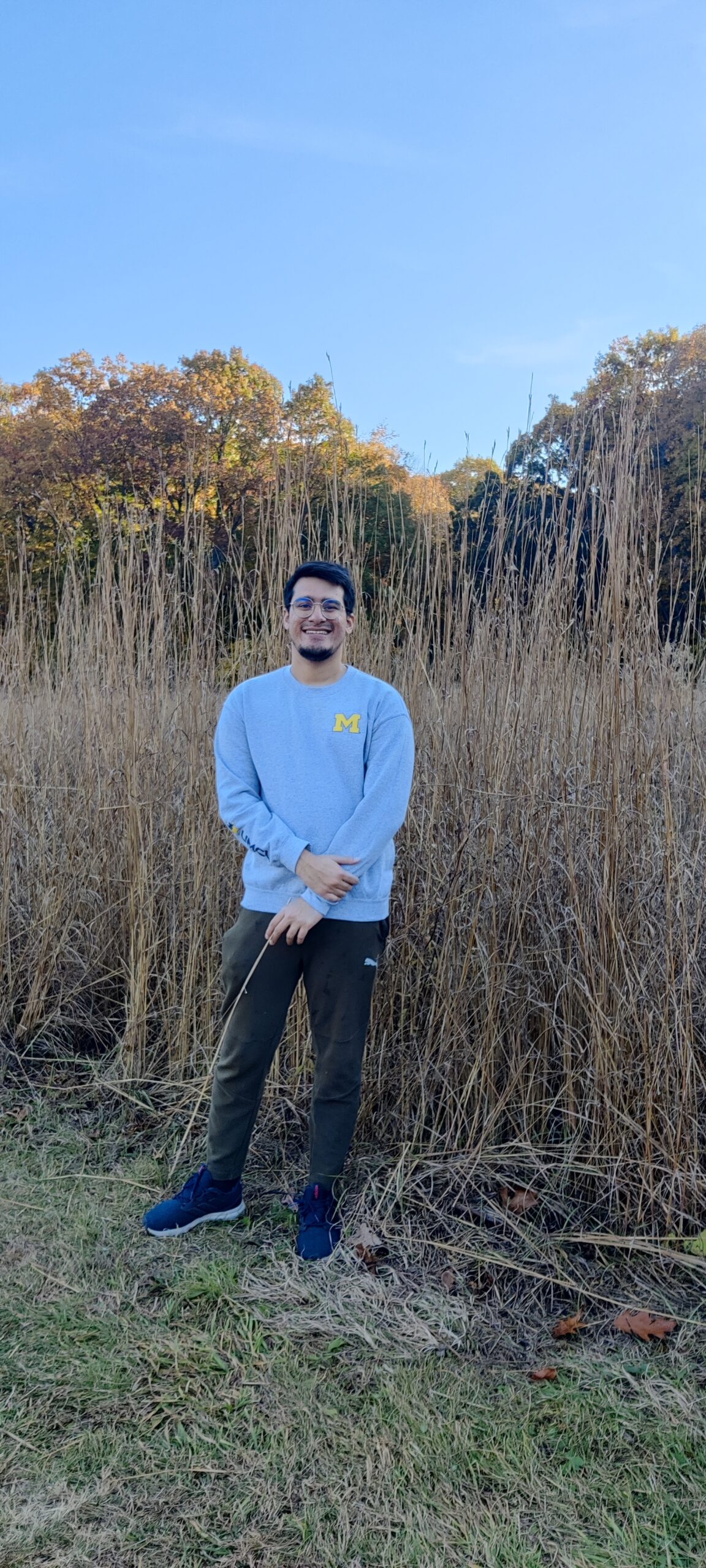The two things I appreciate the most about Taubman are the wealth of knowledge that faculty bring and the diversity of our M.U.R.P. cohort. We have people from all sorts of backgrounds. The thing that binds us together is that we are interested in improving cities! It’s wonderful to learn from my peers.
Hometown
Panaji, Goa, India
Degree Program(s)
M.U.R.P.
Expected Graduation Date
April 2024
Academic Areas of Interest
Land use planning, environment, law, climate adaptation, participatory planning
Hobbies or interests outside of academia
Gardening, cooking, sports
Why did you choose Taubman College as the right program for you?
I have some experience in physical planning before coming to grad school. I looked for planning programs that were flexible and policy-focused. I also looked for universities with robust environmental programs where I could take some classes while completing my planning degree.
What is special or excites you about the Taubman community?
I like the atmosphere at Taubman; some of the spaces, like the commons, are wonderful. The college also has a lot of active student organizations, and the college goes out of its way to encourage Diversity, Equity, and Inclusion. The Taubman community helped international students like me quickly settle in.
If applicable, tell us about studio culture – what is inspiring or innovative or unique?
I appreciate that so many of the faculty in the M.U.R.P. program bring serious work experience to their teaching. Many of the professors continue to engage with communities and governments, and many of the planning issues we have engaged within the last year are live projects.
Describe your experience with faculty and professional staff during your time at Taubman?
I find Taubman faculty to be very supportive and approachable. I have often asked for office hours with professors to discuss things outside of the syllabus, including current events unfurling in my state. It is nice to be able to think aloud with them and they can draw connections that I often overlook. The Ph.D. students also bring a lot of interesting views and are a wonderful resource. Additionally, the staff at Taubman have been accommodating to my varied requests.
How has Taubman’s career and professional development support prepared you for a successful career in your chosen field?
Taubman’s career team sends out an email with current job prospects. They also helped me improve my resume. To be honest, I probably haven’t taken enough advantage of them, but I plan to reach out soon for help with a summer internship.
What benefits have you experienced being part of the University of Michigan?
The two things I appreciate the most about Taubman are the wealth of knowledge that faculty bring and the diversity of our MURP cohort. We have people from all sorts of backgrounds. The thing that binds us together is that we are interested in improving cities! It’s wonderful to learn from my peers.
What do you like most about being part of the Ann Arbor community?
Ann Arbor is one of the prettiest towns I’ve ever lived in. The public transport is robust, and it’s very walkable. It’s got a lot of attractions and activities too! From parks and trails to kayaking on the river, movie nights, game days, and bars. A little for everyone.
What advice would you give prospective students as they consider Taubman College?
Read through the curriculum of the program you want to apply for. Google the professors and don’t hesitate to write to them. Make an informed choice of the program you’re interested in and who you want to advise you. Trust me; it will help if you get in.
What are your plans after graduation?
I’m considering working with international organizations that help local governments in the Global South. I am particularly interested in climate adaptation, as the most vulnerable communities will bear the hardest brunt of climate change, and timely planning may be a way to mitigate harm. I eventually want to return to my home state of Goa, India. And work on participatory planning for climate resilience. Estimates of sea-level rise say that Goa will be one of the hardest-hit areas in the world, and I want to do something about it.
Additional advice or thoughts you’d like to share with prospective students?
Coming to grad school may be daunting. You may think that you need to have a clear vision of what you want to do in the future. While it helps to have some clarity, remember that planning is a wonderfully generalist field. Taubman provides an inclusive environment where you can discover your focus over the two-year program.

